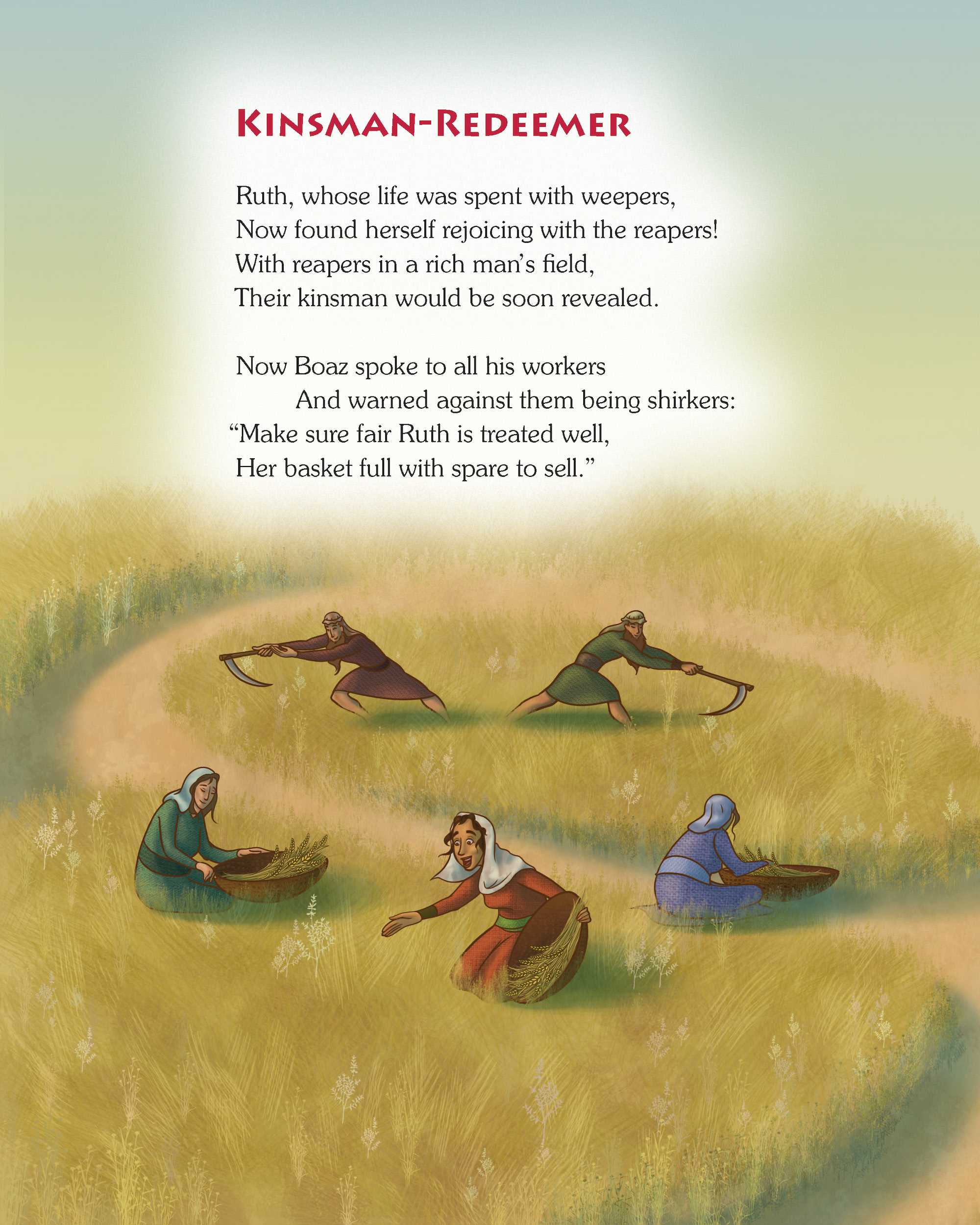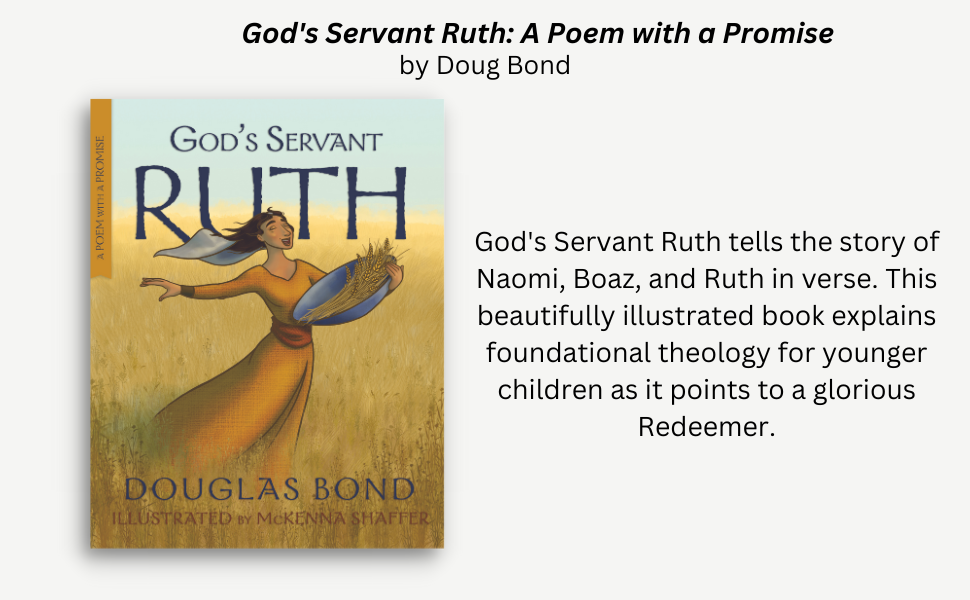The following is taken from a Zoom interview with Douglas Bond and Joy Woo. Doug is the author of many books, including our upcoming release, God’s Servant Ruth, which will be available August 2, 2023.
1) Tell us about yourself—your family, hobbies, and work.

I have six marvelous kids and 11 grandkids, and another grandchild on the way! I’m currently in the midst of caring for my mother. She’s 86 and has congestive heart failure and viral pneumonia. So that is weighing heavily on my heart and mind right now. It sort of reminds one of the woes that come up for Naomi and Ruth, you know—they experienced lots of loss, and that’s normal in the Christian life.
I’m a very eclectic-hobby person. I love sailing. I love salmon fishing. I love going out and gathering clams and mussels . . . and then eating them! I’m a lifelong renovator of old houses too, and in the last five years, I’ve gotten into building tiny houses!
As for work, I am working on three or four projects right now, and I also do a lot of copyediting and content and developmental editing. I also lead tours related to my books through Scriptorium Press. In fact, I’ll be flying to Rome this summer to lead one of those! I also teach an Oxford Creative Writing Masterclass twice a year in London.
2) How did this idea come about—to tell the stories of Scripture through poetry?
Well, obviously it’s not a new thing! I’ve read a lot of books to my kids and grandkids, and sometimes I read them and I think, “I would’ve put that a little differently,” or “I would’ve emphasized this instead . . .” So when I wrote my book on Ruth, I wanted to focus the attention on the fulfillment of this whole story in Christ, because we should read the Word of the Lord looking for the Lord of the Word, as Edmund Clowney said.
So I want to figure out how to go to those Old Testament stories and kind of hit the refresh button. And kids love poetry; my mom used to sit on the couch reading Shakespeare out loud. I thought it was so cool—it sounds so wonderful. Part of the reason for that is that there’s rhythm and meter in poetry, and we like that. God gave us a heartbeat, and iambic pentameter echoes the rhythm of the human heart! And in poetry, you have to scrutinize words on many more levels than you do in prose.
So I gravitate to poetry for children because they love those parallelisms of sound: “Oh, that’s so delicious. Do that again. Read that again, Daddy!” I think it captivates them in its genre. Then, when I’ve got them where I want them, I can hopefully communicate truth.
3) What is something you hope children and their parents will learn from reading the story of Ruth together?
I think we’re intractable legalists. I don’t want antinomianism out there either, but legalism is a default for all of us I think, because it’’s so easy. I want mom and dad reading this out loud to their kids. I’m not just interested in the kids—I want mom and dad’s tendency toward legalism to be corrected too. I think the corrective to legalism is also the corrective to antinomianism: show them Jesus, the Savior. Keep him before them.
I hope the content of the book itself will dismantle that sense of legalism that says, “I checked that box; I read good stuff to my kids.” No, no, no. I hope the book exposes that tendency and presents the Savior afresh. We need to hear the truth of God’s grace from all angles. We need to be hemmed in behind and before. And sometimes that hemming in behind and before is really, really painful. It’s like breaking something in pieces.
God is not capricious when he sends Naomi off. She and her family go to get food because they’re starving, and God doesn’t have a plan to harm them, but it looks like it to Naomi along the way. Sometimes it feels like it along the way for us too. Naomi experienced blow after blow after blow. She had nothing in the ancient semitic world—when your husband dies and then your two sons die and you’re in a foreign land far away from the place where the glory of God dwells, then you are really alone.
And Naomi felt that. “Don’t call me Naomi anymore,” she said, “Call me Mara . . . Bitter. I’m abandoned, I’m empty. I’ve come back with nothing.” That’s how God wants us. That’s how God wants the parents reading this to their children. He wants them to feel that they are nothing: “I’m Mara, I’m Naomi. And I have nothing. Nothing in my hands I bring, simply to the cross I cling.” We are always trying to bring something with us. But the way of the cross is to break us from all the things we cling to. What’s the story of Ruth about? It’s about a purposeful and kind God breaking everything all to pieces and then graciously restoring and rebuilding Naomi’s shattered family—out of which he would give her a great, great grandson named Jesus!
My hope for parents as they read—and for myself as I retold the story—is that they would see our Savior more clearly.
Interview has been edited for length and clarity.
PREORDER GOD’S SERVANT RUTH
Share now:





Comments